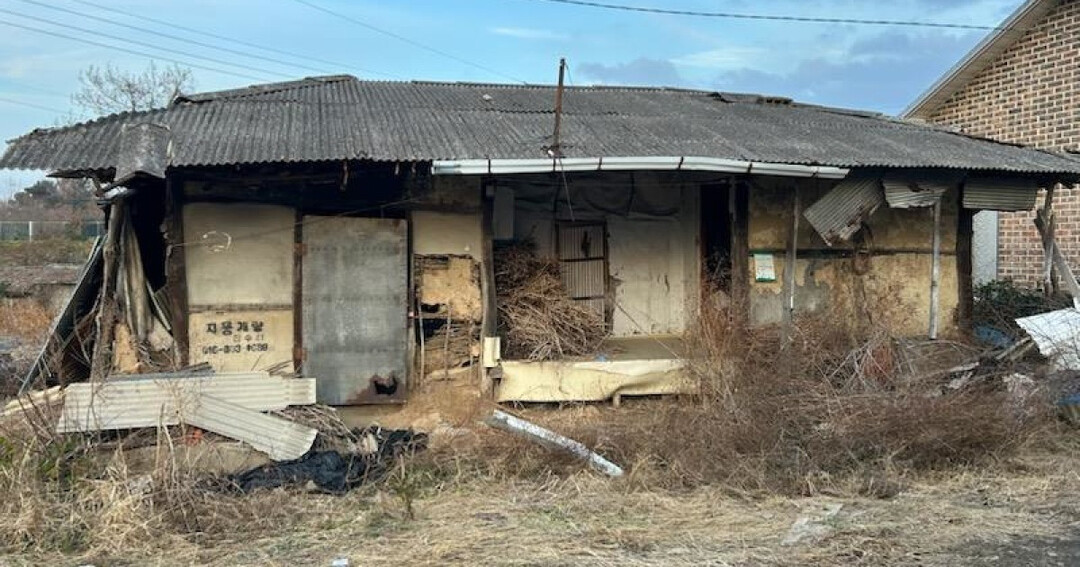
ULSAN, South Korea – As rural and regional areas across South Korea grapple with a growing exodus of residents, Ulsan City is taking a proactive and comprehensive approach to tackle its escalating vacant housing crisis. The city has unveiled a bold initiative to repurpose abandoned homes and commercial spaces into valuable public assets, aiming to revitalize urban environments and attract new residents.
Ulsan, a metropolitan city known for its industrial prowess, has not been immune to the demographic shifts impacting the nation. According to the city's data, as of late last year, Ulsan had 1,855 vacant homes, a noticeable increase from 1,794 in 2019. This figure represents a portion of the broader national trend, with 134,009 vacant homes reported across South Korea. The distribution of these empty properties within Ulsan shows Uljin County leading with 534, followed by Nam-gu (499), Jung-gu (335), Dong-gu (270), and Buk-gu (217). Single-family homes account for the largest share of these vacancies, with 1,160 units, alongside apartments (248), multi-family dwellings, and even unregistered homes.
A critical assessment categorized these vacant homes: 1,025 are deemed Class 1, requiring minimal to no repairs for immediate use; 721 are Class 2, needing some renovation; and 109 are Class 3, necessitating demolition. The issue is further compounded by a sluggish real estate market, with 1,013 unsold new apartments and 582 vacant officetels (office-tels) in Ulsan. Commercial vacancies are also significantly higher than the national average, with large-scale commercial spaces seeing a 17% vacancy rate, small-scale at 6%, and aggregated shopping centers at a staggering 20%.
The primary drivers behind this surge in empty properties are multifaceted: a declining birthrate, persistent population migration to the Seoul metropolitan area, and an imbalance in housing supply and demand. Economic downturns have also played a role, contributing to the rapid decline of Ulsan's commercial districts as consumer traffic diminishes.
In response, Ulsan City has outlined a three-pronged strategy to address the challenge: transforming vacant properties into public amenities for citizens, promoting broader participation in vacancy redevelopment through institutional improvements, and securing national funding by aligning with government-led initiatives.
The city's plan encompasses 14 distinct projects, demonstrating a commitment to diverse solutions. A core initiative involves expanding "vacant house redevelopment projects" where derelict structures are demolished to create essential public spaces like parking lots, rest areas, or community gardens. For salvageable homes, the "vacant house remodeling rental housing pilot project" will convert them into affordable housing for vulnerable populations. In rural areas, the "rural vacant house regeneration project" will convert empty farmhouses into guesthouses or eco-friendly lodging facilities, tapping into the growing trend of rural tourism and "workation" lifestyles.
Furthermore, the city plans to innovate by repurposing larger vacant structures. Closed motels, for instance, could be revitalized as temporary accommodation for large-scale events such as the International Garden Expo. Unused spaces near sports facilities like Dongcheon Gymnasium and Munsu Stadium are being considered as dormitories for athletic teams.
To address the glut of unsold officetels in urban areas, the city proposes acquiring them to provide affordable housing for young professionals and newlywed couples. Empty commercial spaces in strategic locations will be prioritized for new public facilities, and closed daycare centers are earmarked for conversion into public childcare centers. This multi-faceted approach aims to address housing shortages, support public services, and breathe new life into underutilized urban spaces.
To streamline the process, Ulsan will launch "Vabzip-Ae" (빈집애), an online platform dedicated to connecting vacant property owners with potential buyers and renters. This platform aims to facilitate transactions based on actual demand, making it easier for individuals and developers to participate in the revitalization efforts. The city is also actively pursuing national funding by integrating its projects with broader government initiatives like urban regeneration programs and rural environmental improvement projects.
Crucially, Ulsan City is pushing for institutional reforms at the national level. The city plans to advocate for property tax and income tax exemptions for landowners who demolish vacant homes, incentivizing redevelopment and reducing the financial burden on property owners. This legislative change is seen as a vital step to encourage voluntary participation in the vacant home regeneration program.
To ensure the successful implementation of these ambitious plans, Ulsan City has established a dedicated Task Force (TF). This TF will be responsible for overseeing the progress of each project and conducting regular reviews. An Seung-dae, Ulsan's Vice Mayor for Administrative Affairs, emphasized the city's commitment, stating, "We will not merely demolish vacant homes to create parking lots, but rather, the local government will intervene to find various ways to utilize them." He reiterated the city's intention to propose tax incentives to the central government, highlighting the comprehensive nature of Ulsan's strategy to transform its vacant properties into vibrant assets for its citizens.
[Copyright (c) Global Economic Times. All Rights Reserved.]






























